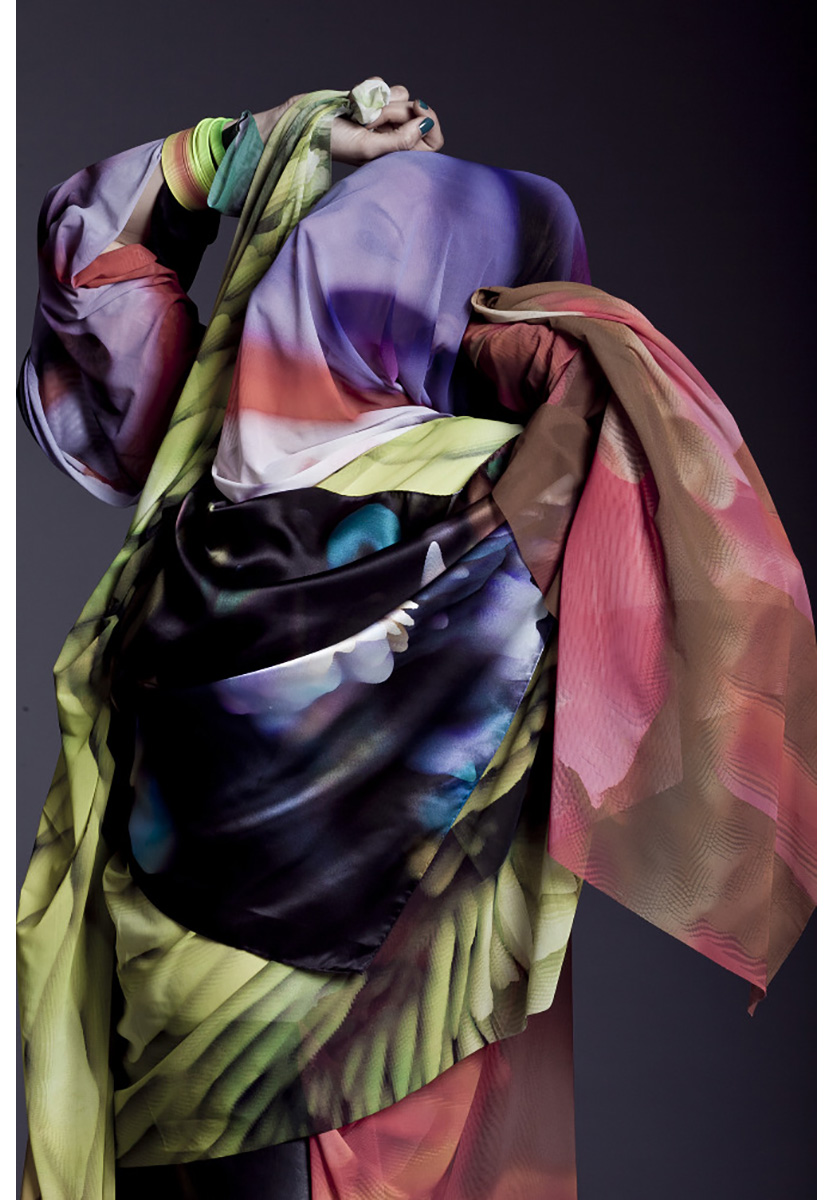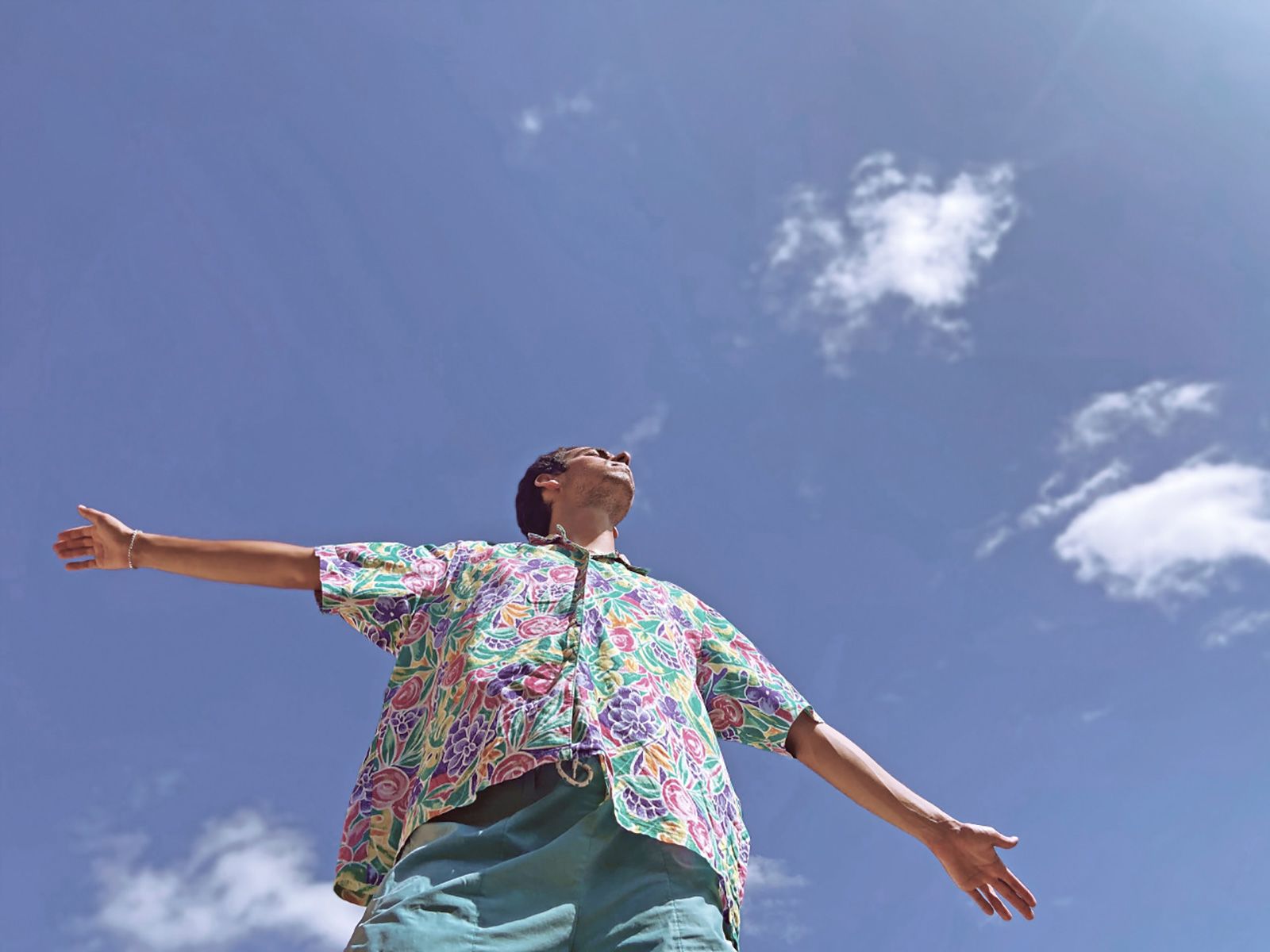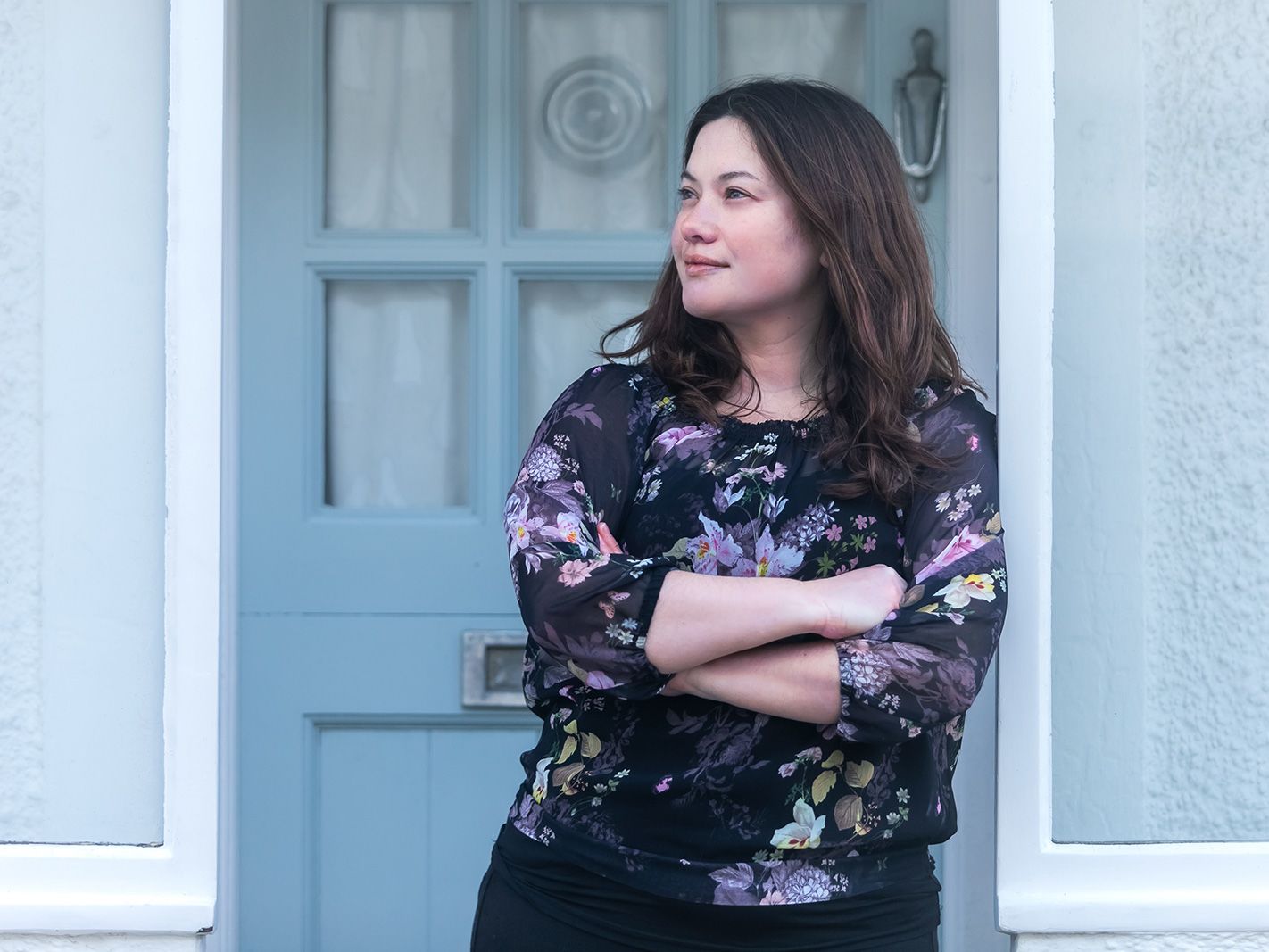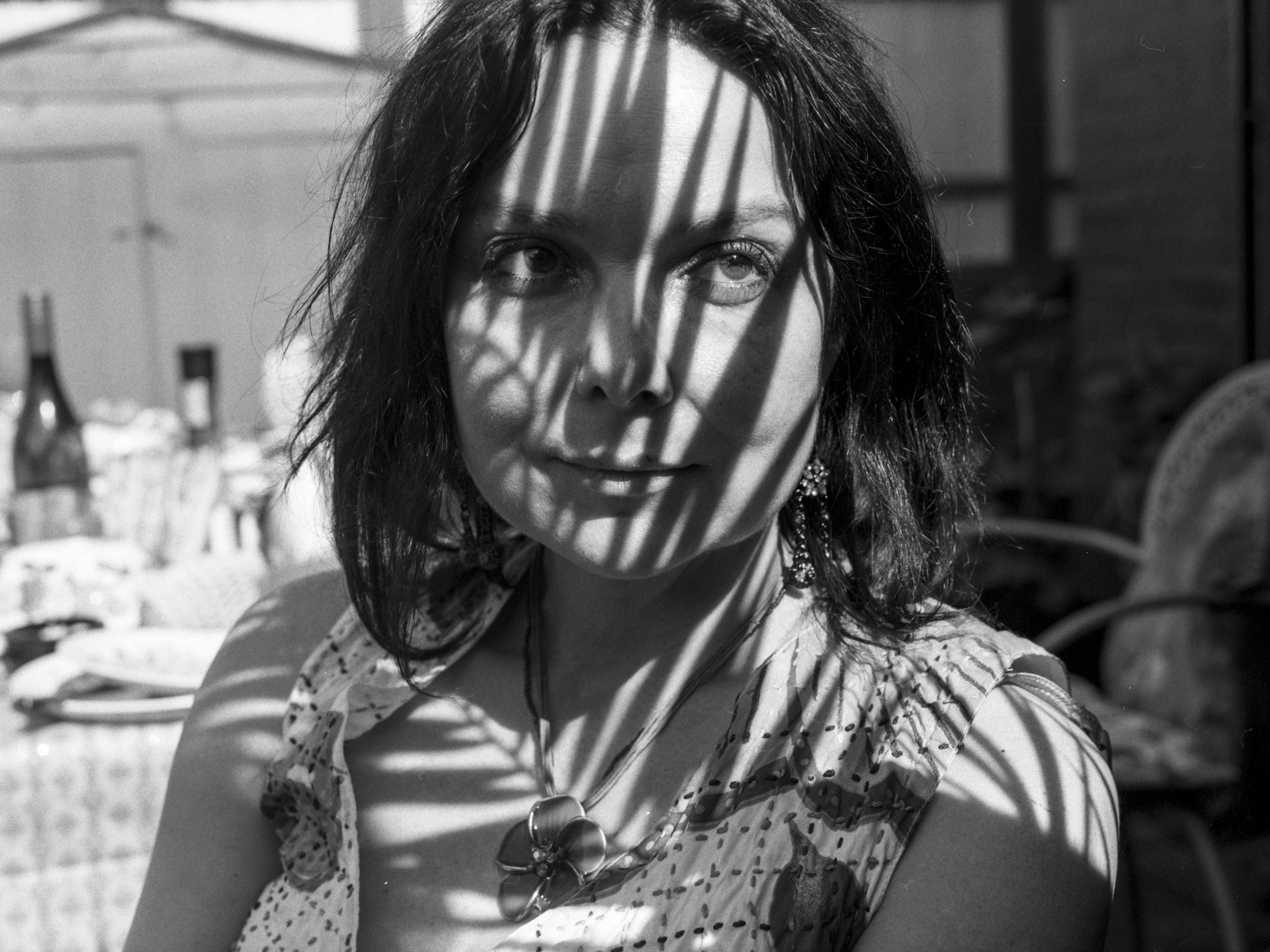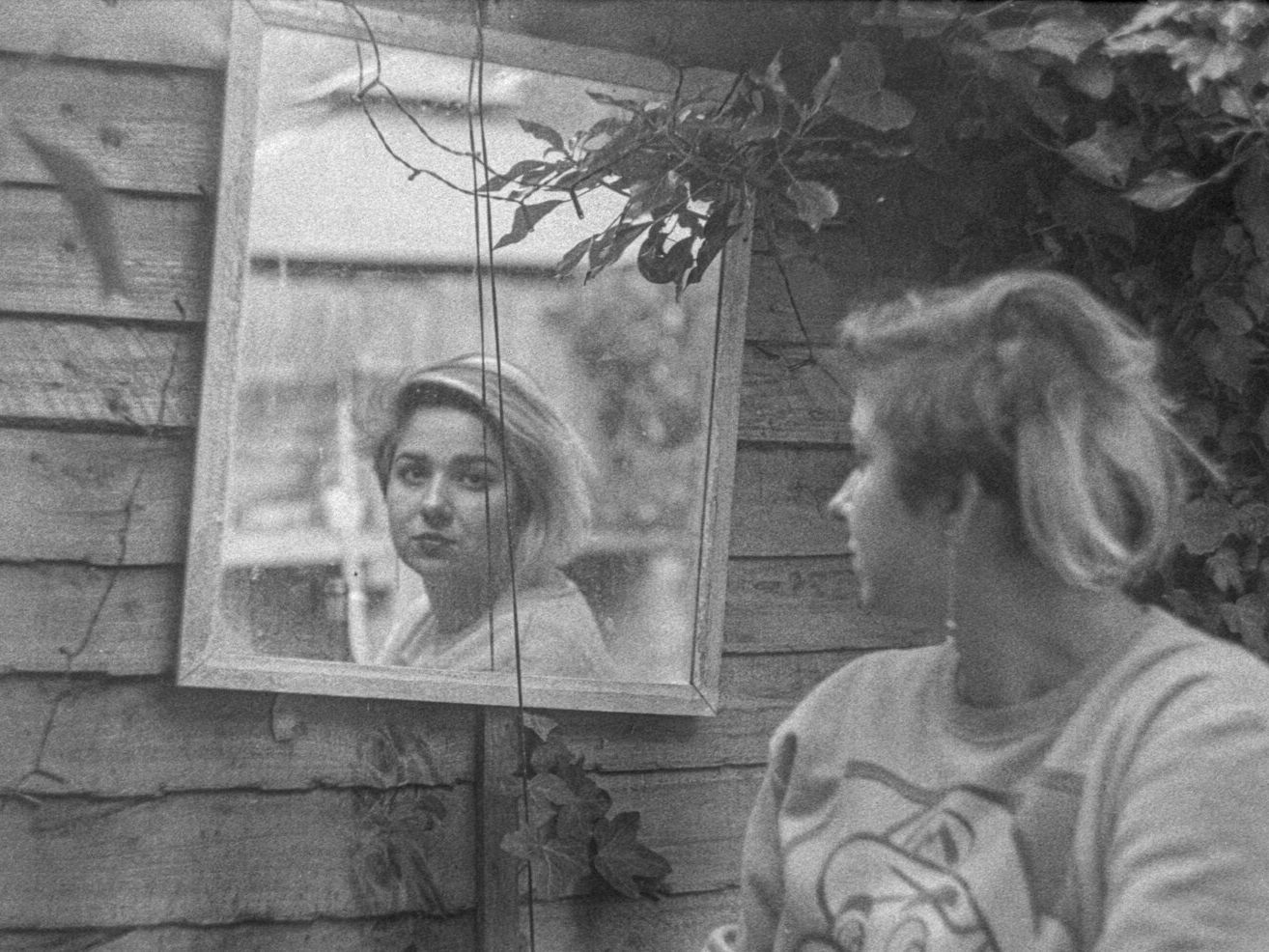At London College of Communication (LCC), we support our students to become the future of the creative industries. We're proud to give them the tools they need to develop key critical and technical skills, build their confidence, and grow their professional networks.
Our Industry Mentoring Programme matches postgraduate students with experienced mentors who can offer helpful tips, information and advice on ways to kick-start their career.
Throughout their connections, mentees gain the professional insight needed to develop their career plans and forge important professional relationships. In turn, mentors gain access to the latest College networks while supporting the next generation of thinkers, makers and communicators.
As part of our Creative Careers series, we're catching up with some of our current mentors to reflect on their experiences.
Chiara Cola
Image creator, textile artist and creative consultant Chiara Cola originally began her career journey in media and communications before pivoting to visual arts in 2007. Since then, she has focused on creating compelling images for prints, videos and fabrics, working across creative fields including costume design for television and film with Gabriella Pescucci and Milena Canonero.
Developing her practice across personal and commissioned projects, Chiara has exhibited her work in venues across the US, UK and Italy, including Art Basel Miami, Brick Lane Gallery, Whitechapel Gallery, Villa Adriana and Cinecittà studios in Rome.
Currently, she is also Associate Senior Lecturer at London Metropolitan University, Adjunct Professor on the BA course in Multimedia Design at the Dubai Institute of Design and Innovation (DIDI), and an Art and Design tutor for the National Saturday Club. She has guest lectured at institutions ranging from Polimoda in Florence to the Academy of Fine Arts in Rome, and is a senior member of the Italian Association of Production Designers, Costume Designers, and Set Decorators (A.S.C.).
We chatted to Chiara about the ethos behind her creative practice, the motivation behind becoming an LCC mentor, and her top tips for students on making the most of the Industry Mentoring Programme at LCC.
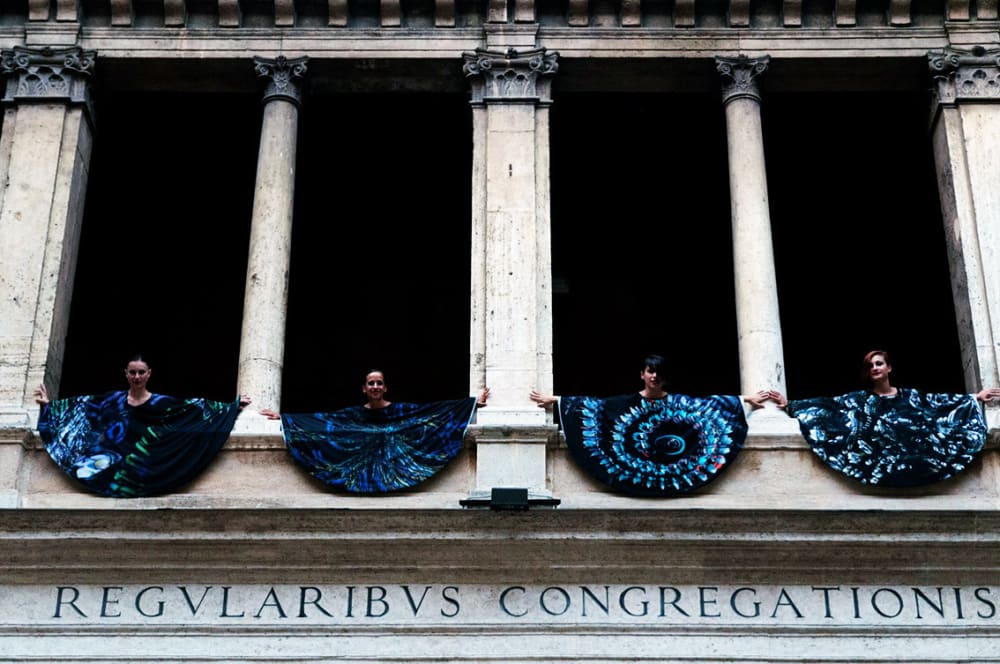
"Teaching has made me a happier individual"
Tell us about your career journey – what have been some of your key highlights so far?
I studied for my MA degree in Media and Communication studies at Sapienza University of Rome before undertaking an MA in Fashion Management at Polimoda in Florence. I would say that the first highlight of my journey was actually my career change in 2007, when I decided to become a self-taught designer and pursue something new and different from my academic journey – although, of course, my studies continue to play a big role in my visual work, especially on the research side. I fell in love with digital art and worked tirelessly to turn it into my job.
I was lucky to meet many wonderful people from the creative industries such as Elio Fiorucci and Diane Pernet. One particular encounter that proved to be a milestone in both my life and career was getting to work as a textile artist with the Academy Award-winning costume designer, Milena Canonero on different movies including The Grand Budapest Hotel. It was an incredibly enriching and fun experience, and I cherished every second of it.
In every cycle of my education, from primary school onwards to university, I had the luck to have at least one fantastic teacher that profoundly shaped the way I saw the world. My decision to teach gave a whole new dimension to my life and the meaning of my work.
I currently teach on the BA Interior Design course at London Metropolitan University with a wonderful team and great students, and for the past 3 years, have tutored in art and design at the National Saturday Club with students aged between 13 to 16. In both courses, we've worked together on some fantastic projects - I deeply admire the student's freedom and bravery in approaching and transforming briefs.
With DIDI students in Multimedia Design, we are crossing different creative languages such as photography, digital design and video-making, alongside the exciting perspectives of design in virtual reality (VR).
Holistically, I think teaching has made me a happier individual.
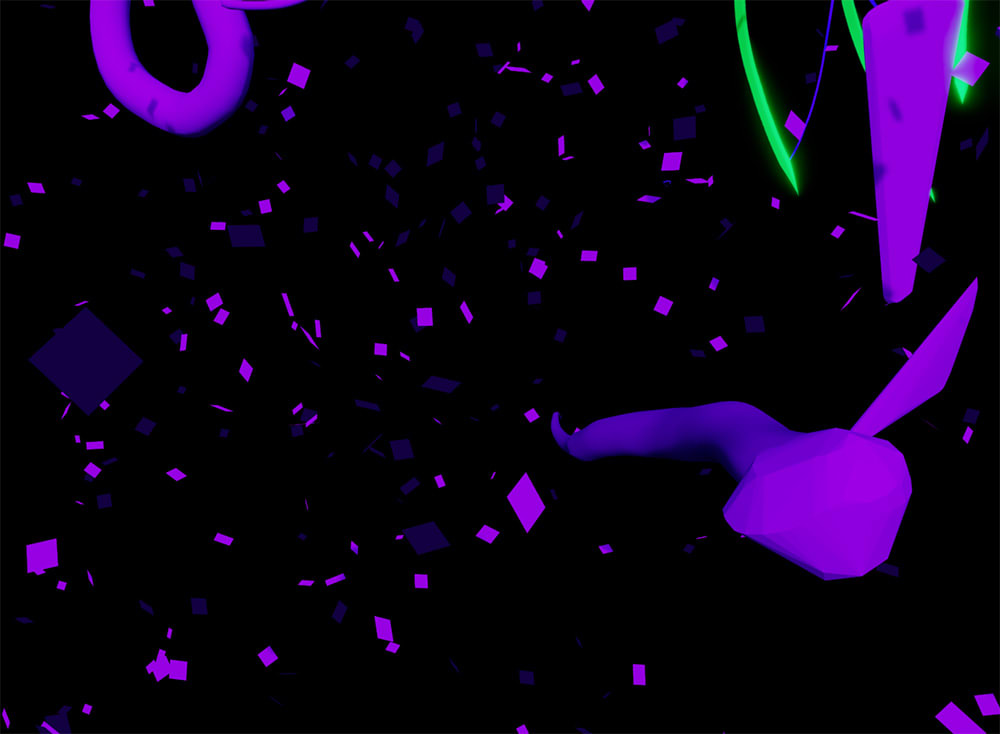
"Respect for the integrity of my work has always been crucial"
What is the ethos that underpins your practice?
Curiosity, and an attraction to new things and challenges, have always pushed me forward into exciting territories. It's always been very rewarding, although it sometimes felt scary at the beginning. To quote a sentence I really love from Ralph Waldo Emerson: “As soon as there is life, there is danger”.
I’ve always tried to work on projects that I feel are meaningful, and with excellent professionals involved. Respect for the integrity of my work has always been crucial in the same way I have a great respect for other people’s work, and for the work of my students.
I’ve also always put a lot of attention in defending the legal rights of my creative work. Unfortunately, it’s so often victim to plagiarism, and even more so when shared online. This is something that I always talk about with my students as future designers – it’s very important that they protect their work in every possible way through registered patents, trademarks etcetera.
More and more, I’ve felt the urgency of making some sort of social impact through my work, and I’m very proud of my collaboration with Shout at Cancer. Founded by Dr Thomas Moors, this is the world’s only charity that specialises in speech training with music after patients undergo after laryngectomies, surgical removal of the voice box, following throat cancer.

"It was wonderful to witness this powerful trait in her character"
Why did you decide to get involved with the Industry Mentoring Programme at LCC?
I attended the programme presentation and I found it so engaging and full of energy. I was immediately very interested - I felt it was the right time for me to begin mentoring, and because of my own deeply cross-disciplinary educational and professional journey, I thought I could offer a wide and useful range of experience.
Having studied for a Master's degree in media and communication studies myself, I also felt a personal connection to some of LCC's areas of specialism.
You recently mentored MA Media, Communications and Critical Practice student (now graduate) Sydney Luntz. How have you been able to support her on her career journey so far?
Mentoring Sydney was a real journey of discovery: her talent is multifaceted as well as her interests. She is a very ambitious individual willing to bring positive change to the world, and this is something that is so evident and makes her eyes shine. It was wonderful to witness this powerful trait in her character. Our conversations often turned quite political as well.
In our second meeting, I asked her to make a list of artists, writers etc she admired, as well as the reason for her choices. I wanted her to focus on her most true self as a fundamental starting point of our journey.
We then put a lot of attention in rewriting together her CV, and also had a mock job interview in which I prepared a lot of tricky questions that are commonly asked while sharing a lot of my own positive and negative experiences so far. This was something she said was very useful to her. We were only able to meet twice before our mentorship was interrupted by the pandemic, but we were able to continue meeting online, and I tried to support her as much as possible during those very hard months.
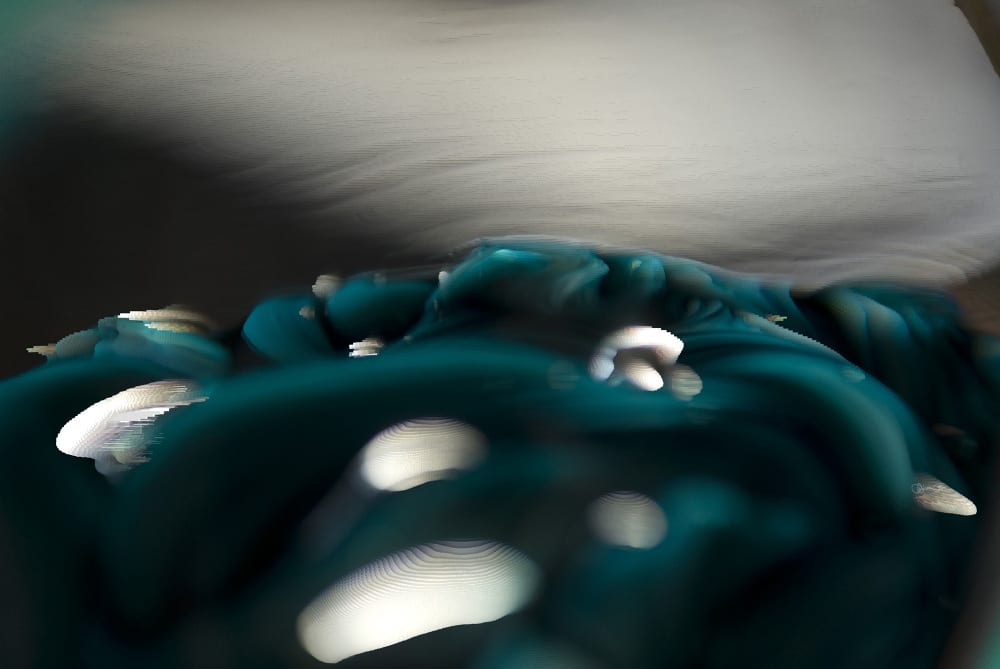
“Be open, don't be shy, ask as many questions as you wish.”
What have been the highlights of your time as an LCC mentor?
Over the past 2 years, both of my mentoring experiences were wonderful. I’d like to personally thank and congratulate Luminita Molico (Graduate Engagement Manager at LCC) for creating some perfect matches. Although their personalities were very different, both of my mentees, Libo and Sydney, had a strong trait in common: their multiple talents. I think this also related well to my own professional experience spanning through many creative fields.
There have been a lot of fantastic moments. I am still in touch with my first mentee, Libo, and I was so proud of her when she showed me the series of children’s books about Chinese philosophers that has been published with her wonderful illustrations.
Sydney wrote to me multiple times how important my contribution was for her and how my mentorship inspired her. As a result, she thought about becoming a mentor herself, and she will now start mentoring a young person as part of the programme, Westminster Befriend a Family. This made me so happy and proud.
I’d also like to add that I opened up to them as well - I think it was important they got to know me and my way of thinking. This has been a gradual process that has enabled me to realise important things about myself too.
How can students make the most of our Industry Mentoring Programme?
I would suggest to any students who are taking part in the programme: be open, don’t be shy, ask as many questions as you wish. And trust your mentor: share your emotions, frustrations, dreams, thoughts, positive and negative experiences - your true self. I believe this is a process that unfolds gradually with both mentor and mentee opening up.
As it’s a 1:1 mentorship, it’s a highly personal and tailor-made journey of 6 months that can really be built around the mentee’s needs and aspirations. I think it’s a very rare opportunity, so I’d advise everyone to make the most of it.
Related links:
- Explore Chiara's work on her website, and check out her VR projects on SketchFab.
- Find out more about our Industry Mentoring Programme.
- Learn more about Business and Innovation at LCC.
